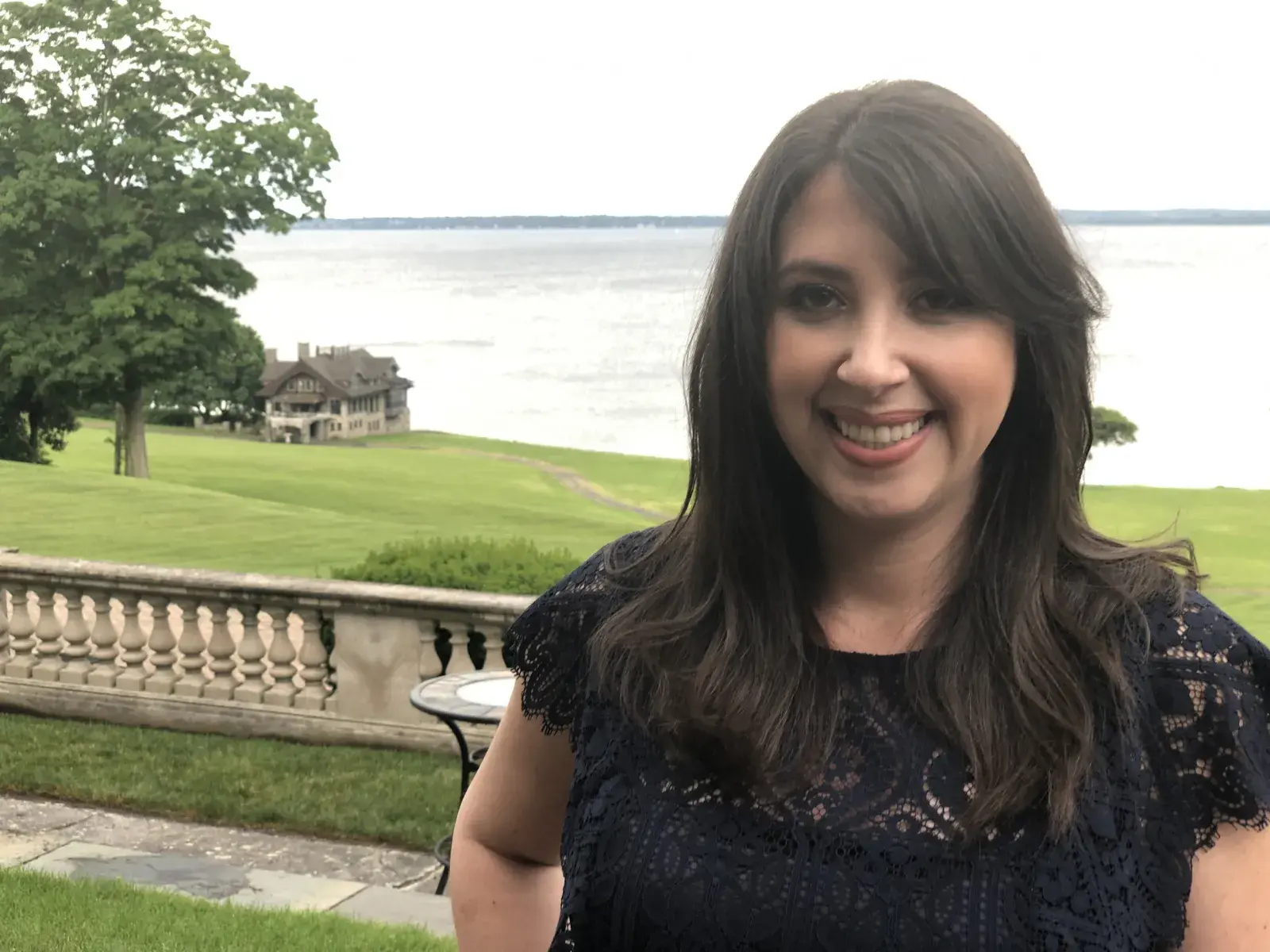A few months ago, I answered a knock at my door. My neighbor, James*, launched into a complaint. "That silver Honda is parked in front, and we have a friend coming over who wants to park there," he said. He was referencing the car belonging to Ana*, a family friend who I hired days before to help with childcare for my toddler.
Ana appeared behind me to see what was going on. James looked at Ana and then at me, and despite Ana being only a few feet away, he nodded at Ana and spoke as if she wasn't there. "Cleaning crew?" he asked me. My head snapped back in shock.
My eyes darted to Ana to see if she'd heard, and somehow it seemed she hadn't. I stammered, unsure of what to say. She was wearing jeans and a T-shirt. She wasn't holding a mop or dusting rag or anything that would indicate she was cleaning. After a moment of gaping, I closed the distance between Ana and me and put my arm around her. "James," I said, looking at Ana, rather than at him, "this is Ana. She just started coming to the house to babysit Hadley while I write." I squeezed Ana's shoulder. "Ana is a long time family friend. She used to be my husband's grandparents' caregiver years ago before they died, and we've stayed in touch," I said.
In that moment, I felt angry and panicked at how James treated Ana. Ana, one of the few people who was able to comfort me when my brother died. When so many people I saw in passing gave me pitying looks or, worse, pretended like nothing happened, she hugged me and said the kindest, most loving things. Ana, who inspires me every day with her faith, her compassion, and her strength. James dismissed her like she didn't matter. And for what?
I didn't know what to do with those feelings. So, I didn't respond to them. Instead, I calmly continued, "With the pandemic, it's just been the three of us but once we'd been vaccinated, I was desperate for some help, and there's no one I would have trusted more with our daughter. We're so grateful that Ana agreed to help us."
While Ana rushed out to move her car, James left without apologizing. She hadn't heard his "cleaning crew" comment, but I still found myself getting angrier and angrier, both at James and myself. I should have asked James why he assumed Ana was my housekeeper. She held no cleaning supplies. We wore similar outfits.
There was no reason to think she was anyone but a friend visiting, or a family member. My mom's side of my family is Mexican and my dad's is Jewish. The thing that was different about Ana and me is that she is visibly Mexican American, and I am not, a fact that has afforded me many privileges in life but also has been a source of conflicting and isolating feelings. When I was young, growing up with a white father who most certainly was racist—and who I am now estranged from—I felt confused about how I looked. Did my light skin make me white and not Mexican? Why would he call people with the same ethnicity or heritage as my grandma and my mom— his wife at the time—racial slurs but not me?
Generally, when people say or do racist things in front of me, they think it's okay. When it is racism from white people, I suspect it is because, in a way, I look like them, so they think I am one of them. But I'm not.
When people joke about or make fun of an immigrant's thick accent in front of me, I think of the way it's difficult for people to understand my grandma. Never mind that the people who are mocking a Spanish speaker tend to only speak one language. Meanwhile, my grandma is fluent in Spanish and English, and even used to be a French translator as well.
When I hear others make judgments about the laziness of immigrants or act as though people who come to this country don't deserve to be here, I recall my grandfather telling me about how he worked tirelessly as an engineer to earn respect and professional opportunities in the United States. A former employer paid him less than what his skills were worth, but my grandpa didn't get angry. He told me he was grateful that the man took advantage of him because without that happening my grandpa wouldn't have had the chance to work and access other opportunities.
Even my siblings, who were born to the same mother and father, have been treated differently than I have. My younger brother was once pulled over by the police because he was driving a car similar to one that was supposedly stolen by a Mexican man. My brother laughed the incident off when he told me about it, but to me it wasn't funny. Maybe sometimes laughing is a way of coping, as is being grateful to be taken advantage of, or brushing off comments as even I have.

Because I, too, smile and turn the other cheek when confronted with this kind of treatment. Once, directly after I told someone that my mother was a first generation American and my grandparents are Mexican, they asked if I was the first person in my family to go to college. I felt angry and embarrassed. But I didn't snap at this woman and tell her she was being racist. I merely let her know that I, in fact, am not the first person on my Mexican side of the family to graduate from college, and then I excused myself from the conversation as fast as I could. I was angry that this woman had the audacity to make such ignorant and offensive comments, but I was also angry at myself.
Racism is not something new to me. I have grappled with my own privilege and my responsibility to correct people for ignorant thinking. It has certainly informed my work as a writer.
I wondered then if I had done the right thing by letting this woman off the hook. Regardless, I generally experience racist comments or microaggressions after I tell someone about my heritage. I don't have to exist in a world that often judges me as less than, but my family does.
When James insulted Ana, he insulted me, and he insulted everyone in my family and with our heritage. I should have been ready to say something. To do something. Anything other than keeping quiet. But I wasn't ready.
If my uncle, who has the same skin color as Ana, came by to visit, would James assume he was our gardener? If my aunt were to stop by, would James ask if she was the housekeeper? There is nothing wrong with being a housekeeper. I've had many jobs before becoming an author and working as a maid at a hotel was one of them. It's thinking someone must be a housekeeper based on the color of their skin that infuriates me. The next time Ana came over, I told her about the racist comment that she hadn't heard James say and apologized. I told her I was going to confront him the next time I saw him. But Ana pleaded with me not to. "Please don't, Nikki," she said. "You still have to be neighbors with him. God will take care of it, but you don't have to."
My stomach sank. I failed to act when I should have. I fumbled with words. I tried to move things along, to keep the peace. My feelings are complicated by the fact that it is clear Ana wouldn't have wanted me to confront James for what he said, in that moment or after. But still, I wish there was a better way, a right way, to handle something like that. To fix what happened. To make it right.
As a writer of young adult fiction, the characters I write deal with complicated questions about racism, identity, and how they can change their world for the better. And they figure things out. Maybe not perfectly, because life isn't perfect. But they face challenges head on, and they emerge on the other side stronger for it.
So, the next time I find myself faced with the kind of circumstance I experienced with Ana and James, I hope I rise to the challenge.
Nikki Barthelmess is the author of Everything Within and In Between, The Quiet You Carry, and Quiet No More. Growing up in foster care, Nikki found solace in books and writing. A former journalist, Nikki lives in Santa Barbara with her family and advocates for the rights of foster youth. You can follow her on Twitter @nikkigrey_.
All views expressed in this article are the author's own.
*Names have been changed.


















